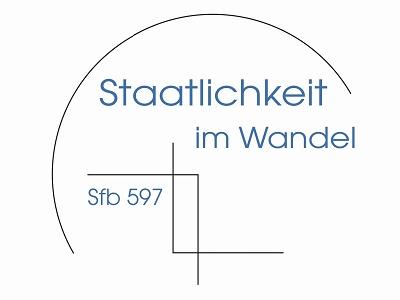Research
Transnationalisation of Law
In a globalised world, not only does national law have to meet cross-border challenges, but there are also legal standards developing beyond the state. Research activities at the faculty have been concerned with these developments for some time. They do not only encompass theoretical analysis, but also practical recommendations for action in a society where the traditional approaches to law have to be transformed to cope with new kinds of problems.
Foundations of Law
From its beginnings, the faculty has placed an emphasis on research into the philosophical, sociological and historical references of the law. Whereas empirical research dominated in the past, nowadays, a wide spectrum of normative and theoretical questions relating to the background of law are investigated. This fundamental work does not only enrich the dogmatic research of the faculty, but also provides numerous interdisciplinary starting points of research.
Digitalisation
The digital transformation is changing nearly all areas of society, which raises numerous legal questions and also changes the legal system itself. The faculty conducts digitalisation research as a cross-sectional task that is concerned with questions from very diverse fields of law. Research topics include new developments such as autonomous robots, consequences of digitalisation in different sectors of society, e.g. in the context of “Work 4.0” as well as regulation and consequences of “legal tech”, e.g. in contract law or in administrative procedures.

BIGAS
Bremen Institute for Gender, Labour and Social Law
The Bremen Institute for Gender, Labour and Social Law was founded in 2002 as a research institute of the Faculty of Law. It continues the work of the research unit "Labour Law, Social Law, Gender Relations Law", which existed from 1995 to 2002.

FEU
Research Centre for European Environmental Law
The Research Centre for European Environmental Law (FEU) was established in 1994 as an Institute of the Faculty of Law. Its research activities are mostly funded by third parties, up to now e.g. by the European Commission, the Federal Environmental Agency, the Federal Ministry for the Environment, the Federal Ministry for Research and Technology, the Global Environment Facility, the German Research Foundation and the Volkswagen Foundation.

FTT
Research Centre for Animal Rights and Animal Welfare Law
In the field of animal rights and animal welfare law, there is a conspicuous lack of high-quality legal literature. The Beck Online database, which is mainly used by the judiciary, lists for example two publications on sect. 4 Animal Welfare Act ("papers on the subject") focused on this provision. They are the only ones that judges and prosecutors will come across when dealing with the interpretation of this central norm. This shortcoming is to be remedied.
IGMR
Institute for Information, Health and Medical Law
The IGMR was established in 1998 at the Faculty of Law of the University of Bremen. The Institute concerns itself with legal science, practice and policy issues of the regulation of health and information law. The central concern of the Institute is the intradisciplinary and interdisciplinary development of an approach responding to the challenges of a modern information society.
IHR
Institute of Commercial Law
The Institute of Commercial Law brings together the competences of the Faculty of Law in the fields of commercial, company and economic law. Research at the Institute is concerned with the external and internal law of economic enterprises.
ZERP
Centre of European Law and Politics
The Centre of European Law and Politics, University of Bremen (ZERP), is an interdisciplinary research institute which was established as a foundation in 1982 by the Senate of the “Freie Hansestadt Bremen”. Its specific feature is an interdisciplinary approach, involving Law, Political and Social Sciences and encompassing political theory, international relations, gender studies, legal theory and sociology, as well as European and international constitutional law, business law and private law.

SFB 597: Transformations of the State (2003-2014)
Scholars in political science, law, sociology, economics and communication studies work together to determine if, and precisely how, pressure from globalisation and liberalisation over the past thirty years have changed the core institutions and functions that define the classical nation state.
Research cooperations
Research Ambassador
Prof. Alex Boniface Makulilo of the Open University Tanzania in Dar es Salaam, Tanzania, has been Research Ambassador of the Faculty of Law since 2019. He is one of the eleven research alumni appointed by the University of Bremen to act as ambassadors worldwide and promote the research work of the University.
more







